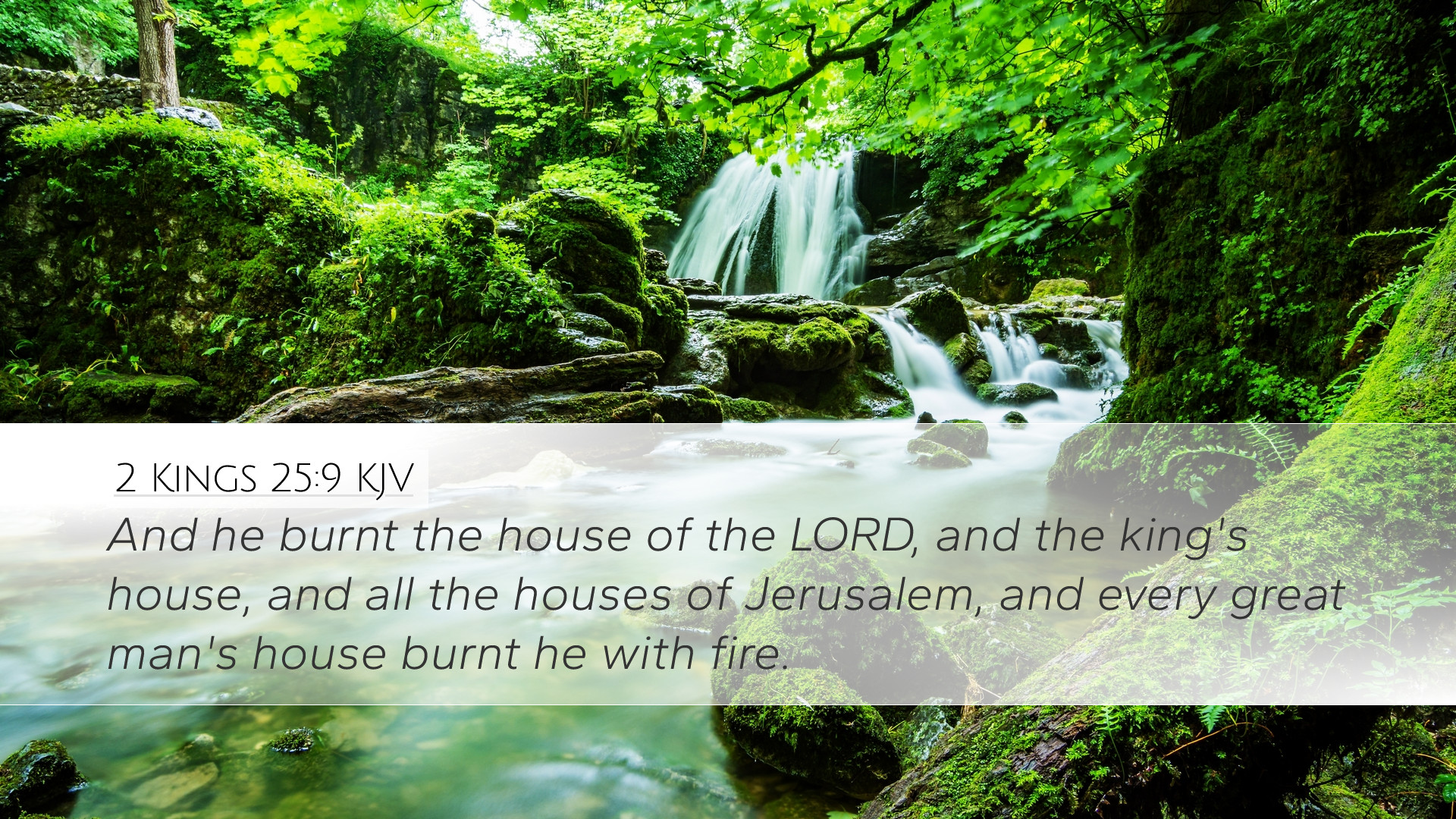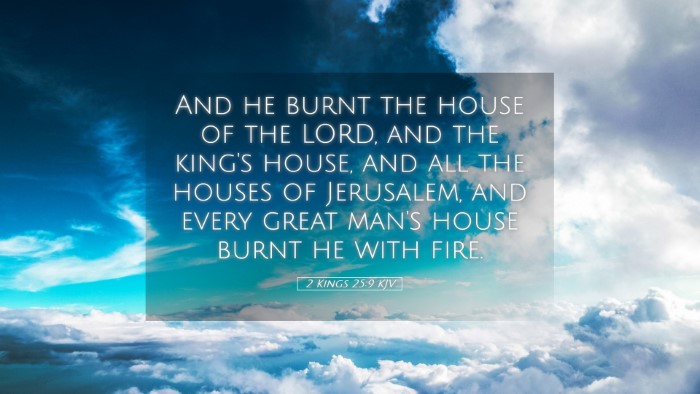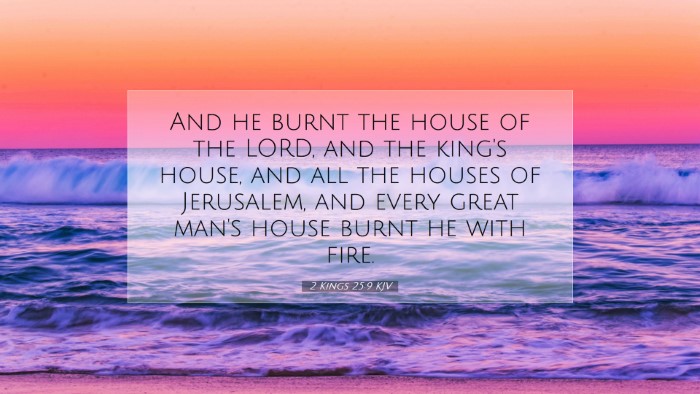Commentary on 2 Kings 25:9
2 Kings 25:9 states: "And he burned the house of the Lord, and the king's house, and all the houses of Jerusalem; and every great man's house burned he with fire." This verse marks a significant moment in the history of Israel, illustrating the dire consequences of disobedience to God and the culmination of God’s judgment upon His people. The destruction of Jerusalem and the temple was not merely a historical event but a profound theological statement about God’s holiness and justice.
Historical Context
The fall of Jerusalem in 586 B.C. was the result of a prolonged period of rebellion against God’s commands. The siege by Nebuchadnezzar follows decades of prophetic warnings, primarily delivered through prophets like Jeremiah. The burning of the temple signifies not only the literal destruction of the religious center of Judaism but also the spiritual devastation of the nation.
Theological Implications
Commentators note that the act of burning the temple and the king's house symbolizes the eternal consequences of sin. According to Matthew Henry, this event illustrates how seriously God takes our allegiance. The temple, once a symbol of God’s presence, has been desecrated, highlighting the contrast between divine holiness and human sinfulness.
The House of the Lord
Albert Barnes suggests that the destruction of the house of the Lord represents the removal of God’s presence from the people. When the temple was burned, it was as if God had withdrawn His hand of protection over Israel. This reflects a broader theological principle: when the church or community neglects genuine worship and holiness, it is subject to divine judgment.
Symbolism of Fire
Fire is often used in the Bible as a symbol of judgment and purification. In this context, Adam Clarke relates the fire that consumed Jerusalem and its structures to the refining fires that purify gold. However, the destruction here is not a purification but a devastation and serves as a clear warning that unrepentant sin leads to catastrophic consequences.
Lessons for Today
- God’s Judgment is Real: The destruction of Jerusalem reminds believers that God is just and judges nations and individuals. Pastors and theologians should teach on the importance of godliness in leadership and community to avoid similar judgments.
- The Importance of the Church: The temple was central to Jewish worship and community identity. Today, the church serves a similar role—its health and holiness directly affect its witness to the world.
- The Role of Prophecy: The warnings delivered by prophets like Jeremiah highlight the necessity of heeding divine counsel. Future shepherds must ensure they communicate God's truth with urgency and love.
Conclusion
2 Kings 25:9 serves as a sobering reminder of the consequences of turning away from God. The destruction of the temple and the city marks a pivotal moment in biblical history, showcasing not just the might of Babylon but the unwavering justice of God. As students and scholars reflect upon this text, let it resonate as a warning against complacency in faith and a call to genuine worship.


